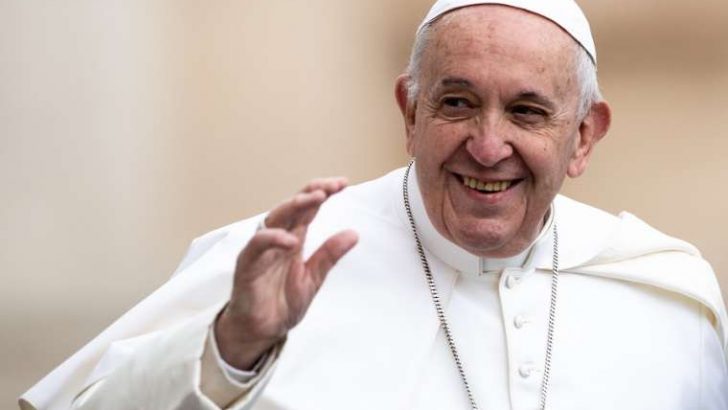Put down phone, pick up Bible – Pope’s Lent advice
Pope Francis has told Catholics to use the season of Lent to spend less time watching television or being on their phones, and to spend more time reading the Bible.
The Pope reflected on the “desert” of Lent during his weekly general audience and how counter cultural it is to spend time in silence; away from the noise of the modern world.
“Lent is the right time to make room for the Word of God,” he said on February 26.
“It is the time to turn off the television and open the Bible. It is the time to disconnect from your cell phone and connect to the Gospel.”
The Holy Father also said fasting is a way of seeking a simpler life by giving up superfluous, vain things.
However, he warned the faithful that fasting is not about “slimming down”.
“In the desert, one finds intimacy with God, the love of the Lord,” said Pope Francis.
“The road that leads us from death to life opens up in the desert. We enter the desert with Jesus, we will go out savouring Easter…have courage.”
Protection of minors better since 2019 summit, says Fr Zollner
The protection of minors in the Church has improved since last year’s summit, according to prominent priest Fr Hans Zollner.
Fr Zollner, a member of the Pontifical Commission for the Protection of Minors, says steps have been taken to address clerical sexual abuse.
A year on from the meeting, he said: “We have had a number of changes in the law of the Church. “All dioceses are now obliged to establish an office for reporting abuse and for intervention and prevention.
“The age for child sexual exploitation material was raised from 14 to 18 and that pontifical secret was abolished in regards to those cases.”
Fr Zollner, who is also president of the Centre for Child Protection at the Pontifical Gregorian University, says there has been a “change of attitude” towards preventing abuse.
“There is now a deeper awareness and a greater willingness to really tackle the issue, so that young people and vulnerable adults are safer in our Church. The most important thing that we need to learn is that victims need to be listened to.”
Algor-ethics essential to use of AI in medicine
A prominent professor has highlighted the importance of ethics in healthcare at a workshop in the Vatican last week.
The workshop on ethics in artificial intelligence (AI) took place in the New Synod Hall on February 26 and discussed guidance for an increased use of AI in the management and provision of medicine.
Prof. Maria Chiara Carrozza, an Italian industrial bioengineer at the Santa’Anna School of Advanced Studies in Pisa, spoke about how AI can integrate with human intelligence in healthcare.
She said: “AI technologies are becoming more sophisticated but are subject to biases based on ethnic, cultural and religious categories.
“It is therefore necessary to understand the algorithms in AI and how they work in order to develop programmes that follow human ethical principles.”
She added: “We must know the process that was used in the making of decisions and even enter into the process. This is algor-ethics.
“We must guarantee human dignity, human access to healthcare mechanisms and ensure that the data of patients is used for good and not for bad – not for business.”


 Pope Francis
Photo: Daniel Ibanez/CNA.
Pope Francis
Photo: Daniel Ibanez/CNA. 